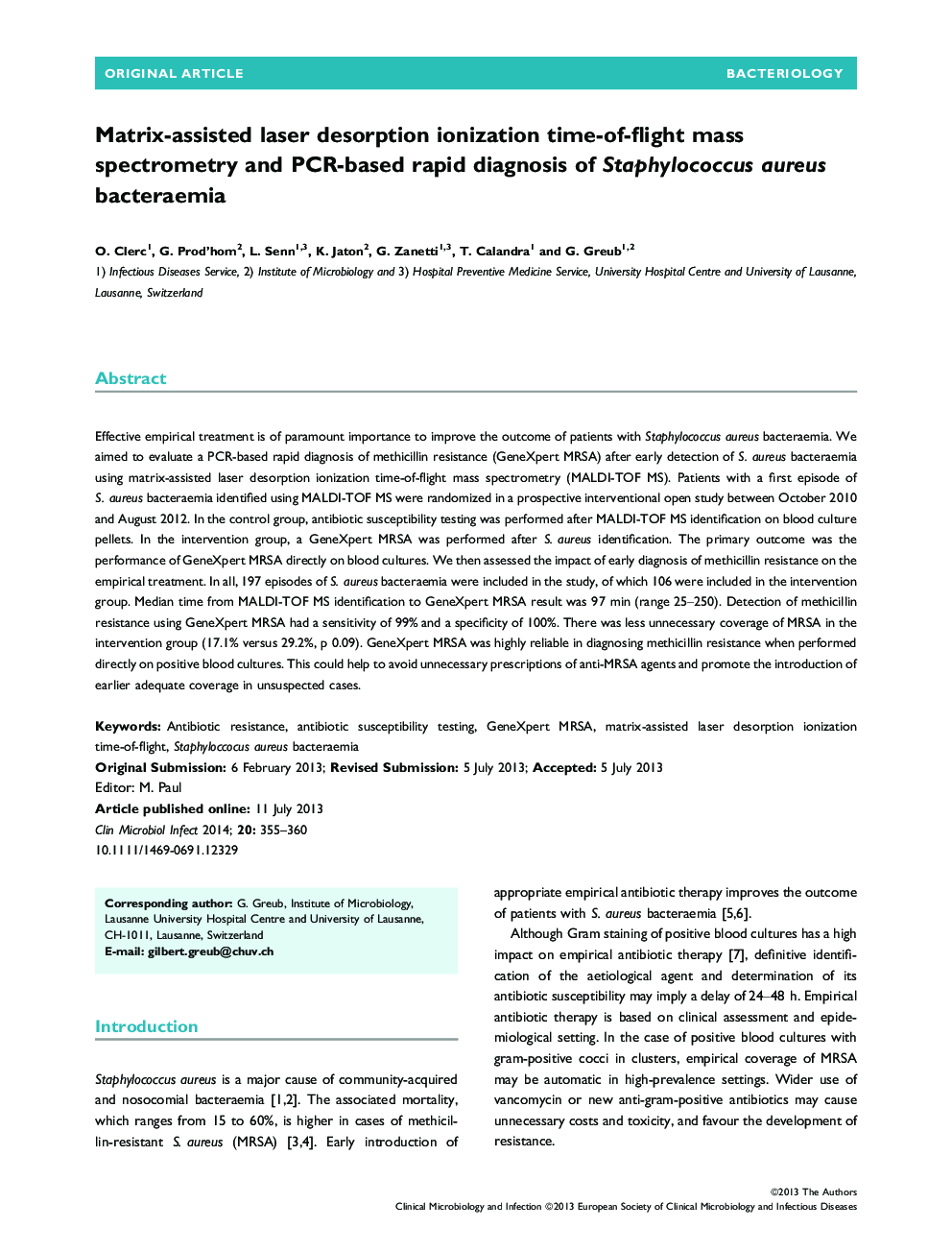| Article ID | Journal | Published Year | Pages | File Type |
|---|---|---|---|---|
| 6130415 | Clinical Microbiology and Infection | 2014 | 6 Pages |
Abstract
Effective empirical treatment is of paramount importance to improve the outcome of patients with Staphylococcus aureus bacteraemia. We aimed to evaluate a PCR-based rapid diagnosis of methicillin resistance (GeneXpert MRSA) after early detection of S. aureus bacteraemia using matrix-assisted laser desorption ionization time-of-flight mass spectrometry (MALDI-TOF MS). Patients with a first episode of S. aureus bacteraemia identified using MALDI-TOF MS were randomized in a prospective interventional open study between October 2010 and August 2012. In the control group, antibiotic susceptibility testing was performed after MALDI-TOF MS identification on blood culture pellets. In the intervention group, a GeneXpert MRSA was performed after S. aureus identification. The primary outcome was the performance of GeneXpert MRSA directly on blood cultures. We then assessed the impact of early diagnosis of methicillin resistance on the empirical treatment. In all, 197 episodes of S. aureus bacteraemia were included in the study, of which 106 were included in the intervention group. Median time from MALDI-TOF MS identification to GeneXpert MRSA result was 97 min (range 25-250). Detection of methicillin resistance using GeneXpert MRSA had a sensitivity of 99% and a specificity of 100%. There was less unnecessary coverage of MRSA in the intervention group (17.1% versus 29.2%, p 0.09). GeneXpert MRSA was highly reliable in diagnosing methicillin resistance when performed directly on positive blood cultures. This could help to avoid unnecessary prescriptions of anti-MRSA agents and promote the introduction of earlier adequate coverage in unsuspected cases.
Keywords
Related Topics
Life Sciences
Immunology and Microbiology
Microbiology
Authors
O. Clerc, G. Prod'hom, L. Senn, K. Jaton, G. Zanetti, T. Calandra, G. Greub,
